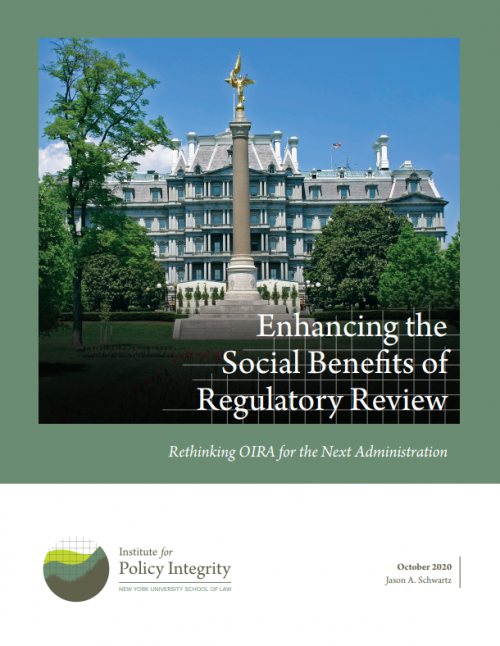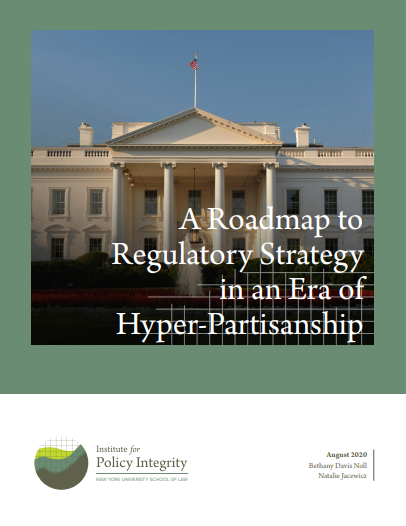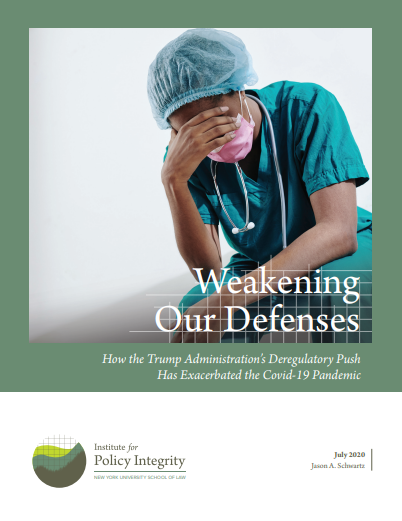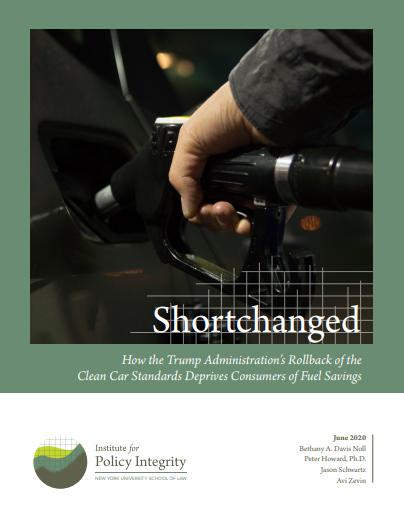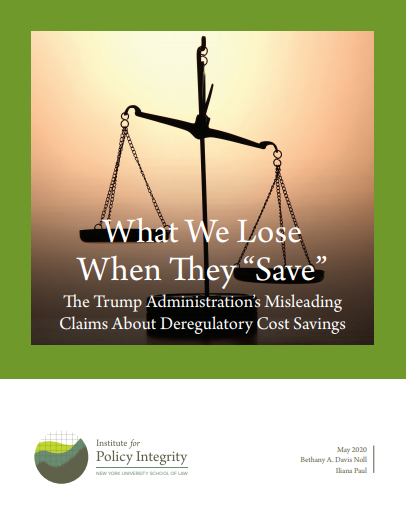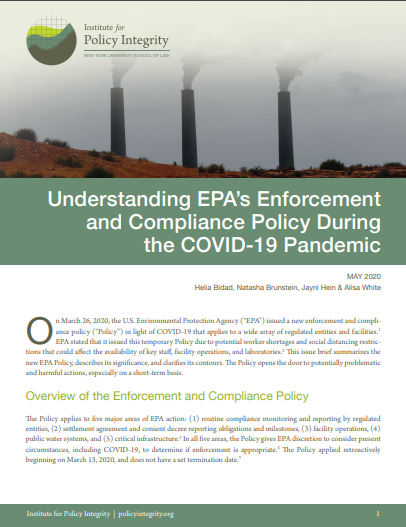-
Enhancing the Social Benefits of Regulatory Review
Rethinking OIRA for the Next Administration
In recent years, federal leadership has distorted the practice of regulatory analysis and has eroded the integrity of the government’s regulatory review structure as coordinated by the Office of Information and Regulatory Affairs (OIRA). The result has been a torrent of deregulatory actions that have worked against the best interests of the American people and their health, safety, environment, and financial well-being. Our report details the path forward on regulatory review, which is to first surgically excise recent distortions, and then to reaffirm the best principles and practices from the past, while adding key corrections and enhancements. Implementing the reforms recommended in this report will refocus OIRA on helping agencies once again use regulations to maximize net social welfare.
-
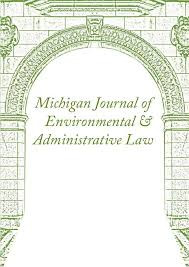
Implementing NEPA in the Age of Climate Change
Published in the Michigan Journal of Environmental & Administrative Law
Under the National Environmental Policy Act, agencies must consider the environmental impacts of major federal actions before they can move forward. But agencies frequently downplay or ignore the climate change impacts of their projects in NEPA analyses, citing a slew of technical difficulties and uncertainties. This article, published in the Michigan Journal of Environmental & Administrative Law, aims to highlight best practices so that agency offices can learn from one another, fulfill NEPA’s mandate, and begin to provide leadership in the fight against climate change.
-
A Roadmap to Regulatory Strategy in an Era of Hyper-Partisanship
This report discusses how an administration that begins a new term can navigate regulatory strategy. It offers advice on navigating this terrain for White House officials, the Office of Information and Regulatory Affairs, transition teams at agencies, and advocates. The report also contains a section on how an incoming administration can roll back the prior administration’s rules if there is an inter-party transition.
-
Comments to EPA on Proposal for Cost-Benefit Analysis and the Clean Air Act
We submitted joint comments to EPA and the chartered Science Advisory Board noting that the proposal is unnecessary and explaining how it breaks from best practices for cost-benefit analysis of regulations in several significant ways.
-
Weakening Our Defenses
How the Trump Administration’s Deregulatory Push Has Exacerbated the Covid-19 Pandemic
The failure of the federal government to adequately safeguard the health, environment, and economy of the United States with efficient regulatory protections is not a new phenomenon. For over three years now, the Trump administration has systematically delayed, undermined, and erased key regulations that protect our health, our environment, our workplaces, our living conditions, and our economy. The steady erosion of regulatory safeguards has severely compromised our baseline defenses against Covid-19.
-
Shortchanged: How the Trump Administration’s Rollback of the Clean Car Standards Deprives Consumers of Fuel Savings
The Trump administration recently replaced the Obama administration’s strongest climate policy, the Clean Car Standards, with a significantly weaker rule. We explain how EPA and NHTSA, to justify the rollback, rely on an analytical gimmick that contravenes decades of agency practice across administrations as well as the principles of basic economics.
-
What We Lose When They “Save”
The Administration’s Misleading Claims About Deregulatory Cost Savings
The Trump administration regularly boasts about the cost savings of rolling back regulations, focusing on industry profits without considering significant negative impacts. This policy brief address and counters the administration's cost savings claims and demonstrates that they should not be taken at face value.
-
Understanding EPA’s Enforcement and Compliance Policy During the COVID-19 Pandemic
This issue brief summarizes EPA's enforcement and compliance policy in light of COVID-19, describing its significance and clarifying its contours. The policy opens the door to potentially problematic and harmful actions, especially on a short-term basis.
-
Joint Comments to CFTC on Climate-Related Market Risk
The Commodity Futures Trading Commission (CFTC) requested public input on issues relevant to its Climate-Related Market Risk Subcommittee. We submitted joint comments highlighting the significant financial risks that climate change poses and emphasizing that an economy-wide price on carbon emissions is the regulatory tool that will be the most effective in mitigating a climate-related financial crisis.
-
Comments to SEC on Regulation S-K and Climate Risk
The Securities and Exchange Commission (SEC) proposed a rule modifying Regulation S-K, which governs reporting requirements for public companies. We submitted comments focusing on the SEC’s failure to require disclosure of risks relating to climate change. Climate risks are economy-wide impacts in which the future increasingly diverges from past experience, and predicting such risks requires more granular data than is typically disclosed in financial reporting. We suggest that the SEC adopt a more specific line-item approach to climate risk reporting, similar to the framework suggested under the Task Force on Climate-Related Financial Disclosures.
Viewing recent projects in Government Transparency

